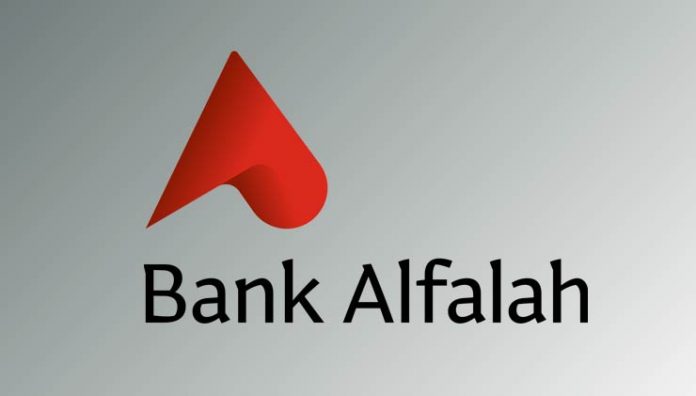Bank Alfalah Limited (BAFL) has completed the purchase/buy-back of 200 million shares, the biggest buyback volume of 2022. On the last trading day on the Pakistan Stock Exchange (PSX) for the year, the bank aggressively bought about 54,479,709 (approximately 27%) of its total buyback.
This is approximately Rs. 1,626,354,661 worth of shares bought by the bank during the day; and signifies the International Finance Corporations (IFC)’s partial exit from the bank. The company subsequently made the announcement to the PSX on Friday.
“Bank Alfalah Limited (“the Bank”) has carried out / completed the purchase / buy-back of the approved ordinary shares i.e. 200,000,000 (Two Hundred Million) shares, as per special resolution passed by the members of the Bank at the Extraordinary General Meeting held on December 6, 2022, through the Pakistan Stock Exchange Limited, at the relevant spot / current share price prevailing from time to time during the purchase period. Accordingly, since the Buy-Back of shares has been completed.”
The bank started the purchase/buy-back period on December 14, 2022. The buyback period was for a period of 60 days until June 02, 2023, or whenever the buyback was completed.
The 200 million represented approximately 11.25% of the current paid-up capital of the company and approximately 32.20% of its free float. The free float represents the number of shares available on the stock market for trading. The purpose of the buyback was the cancellation of shares.
IFC given exit through buyback?
In 2014, IFC acquired a stake of 15 percent in the Bank, which represented a key strategic alliance at the time. During the buyback period, IFC sold upwards of 85 million shares, comprising 43% of the total buyback announced by the bank.
Buybacks usually raise the price of a share as the breakup value of a stock increases. However, the BAFL buyback has decreased its share price, raising the question of what actually happened. This is where IFC, a major shareholder in BAFL holding approximately 14.74% equity, comes in.
According to Suleman Maniya, head of advisory at Vector Securities, giving IFC a partial exit has been detrimental for the minority shareholders who would have otherwise benefited from the potential increase in share price if IFC had not offloaded its investment through the market.
He says, “If one looks at the total buyback of BAFL, and then compares it with how much IFC sold, then it shows that this buyback is only for IFC. So it seems that shareholder funds have been used whereas it is being claimed that this is done to increase shareholder wealth. The question is, why is IFC given an exit? The sponsors of the bank could have directly bought IFC’s stake if IFC really wanted an exit. So, it seems that minority shareholders have lost in this kind of buyback which is why the share price of the bank has gone down. Normally, if someone had bought 200 mn shares from the market, the price would have gone materially up. So this buyback has not created value effectively.”
IFC took advantage of the buyback to partially offload its investment in the bank. During the buyback period, IFC sold a total of 85,909,126 shares, which comprised 43% of the 200 million shares to be bought back by the bank.
It started selling its shares on December 14th, then continued on 15th, 16th, 19th, and finally on 27th. Before IFC sold its shares, the BAFL share price was Rs. 32.50. After closing on December 19th, the share price dropped to Rs. 30.05. The share price then slightly dropped below Rs. 30 and stayed below for the next two weeks. By the end of the week on Friday, when BAFL bought its last chunk of 54 million shares, the share price marginally crossed above 30 to finally close at Rs. 30.14.
IFC shareholding as at 31 December 2021 was 261,895,095 shares or 14.74% shareholding. After IFC sold 85,909,126 shares during the buyback period (approximately 32.8% of its shares), it is now left with 175,985,969 shares. When the shares bought back are finally cancelled by the bank, IFC’s new shareholding will be 11.15%. This still makes IFC a significant shareholder in the bank.
BAFL new total paid up shares 1,577,165,119. BAFL’s new free float will be 422,007,792 or 26.75%
Why exit through a buyback?
The head of research at a brokerage firm explains on the condition of anonymity that IFC exited through a buy back due to FX outflow restrictions. “SBP apparently did not allow direct buyback so they went through this route. The SBP probably did not allow a direct buyback fearing dollar outflows.”
He adds that even though IFC has exited BAFL, it is likely that they may find it hard to take the money out of Pakistan and will reinvest. In November IFC proposed to invest in an unfunded risk participation facility of up to $200 million with Standard Chartered (Pakistan) Limited (SCBPL).
Following this, on November 15 the IFC announced a new $225 million venture capital platform to strengthen venture capital ecosystems and invest in early-stage companies addressing development challenges through technological innovations in climate, health care, education, agriculture, e-commerce, and other sectors in Africa, Middle East, Central Asia, and Pakistan
“IFC may be exiting BAFL as their views on sector allocation may have changed,” says Fahad Rauf Head of Research at Ismail Iqbal Securities.
The BAFL buy-back was the fifth such announcement by a listed company in 2022. It started with NETSOL in May (2 million), followed by Maple Leaf Cement (25 million), then Lucky Cement (10 million), JDW Sugar Mills (2 million), then BAFL (200 million), and finally ENGRO (70 million).
During the year, the share prices of many profitable and established companies took a huge hit. This made their valuations attractive. But due to a lack of institutional and foreign investors in the market, the sponsors of these companies decided to take advantage of the decline in share prices and buy back their own companies’ shares.





MASHALLAH